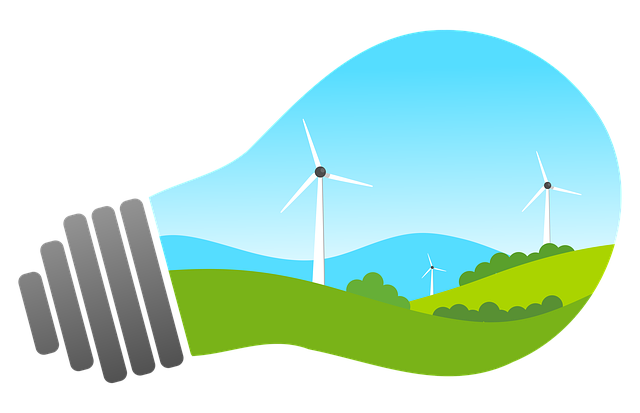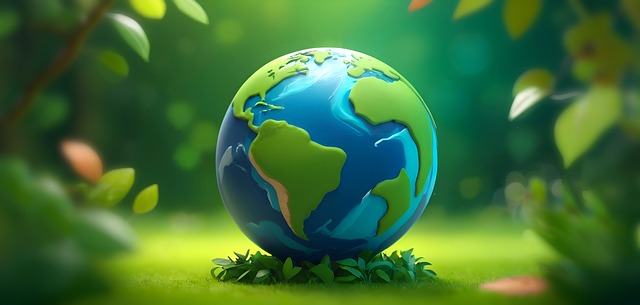The plumbing industry is undergoing an eco-conscious transformation driven by global sustainability efforts. Key innovations include low-flow fixtures that reduce water usage, tankless heaters for efficient heating, and rainwater harvesting systems for non-potable applications. Smart monitoring technologies track and manage water consumption. These eco-friendly approaches benefit both homeowners and the planet, promoting water conservation, energy efficiency, and long-term cost savings while fostering responsible water management practices in residential and commercial settings.
In today’s world of environmental consciousness, embracing sustainable practices has become paramount, including within the realm of plumbing. This article delves into the transformative power of eco-friendly materials in modern plumbing, exploring their numerous benefits and successful implementations. From reducing water consumption with low-flow fixtures and tankless heaters to harnessing rainwater harvesting, these innovations revolutionize both residential and commercial settings. Furthermore, we discuss cutting-edge smart monitoring systems that enable real-time leak detection and efficient water usage tracking, fostering a more sustainable future for all.
- The Role of Eco-Friendly Materials in Modern Plumbing
- – Exploring the benefits of sustainable materials for pipe repairs
- – Case studies: Successful implementations in residential and commercial settings
The Role of Eco-Friendly Materials in Modern Plumbing

In today’s world, where environmental consciousness is on the rise, the plumbing industry is undergoing a green revolution. The traditional methods and materials used for pipe repairs are being reevaluated in favor of eco-friendly alternatives. This shift towards sustainable practices not only minimizes the environmental impact but also offers long-term benefits for both homeowners and the planet. By adopting eco-friendly plumbing solutions, we can significantly reduce water wastage and energy consumption.
Low-flow fixtures, such as water-efficient faucets and showerheads, are at the forefront of this movement. These innovations help conserve precious resources without compromising on performance. Additionally, tankless heaters are gaining popularity due to their energy efficiency. Rainwater harvesting systems further contribute to sustainable plumbing by utilizing a natural resource for non-potable uses. Furthermore, the integration of smart monitoring technologies allows for precise tracking of water usage, empowering individuals to make informed decisions and reduce their ecological footprint. These eco-conscious approaches not only define modern plumbing but also set the stage for a greener future.
– Exploring the benefits of sustainable materials for pipe repairs

In today’s world, where environmental consciousness is on the rise, exploring eco-friendly solutions for pipe repairs is not just a trend but a necessity. Sustainable materials offer numerous benefits that extend far beyond reducing carbon footprints; they contribute to water conservation, energy efficiency, and even long-term cost savings. Incorporating low-flow fixtures, for instance, can significantly decrease water consumption without compromising performance, aligning perfectly with the goals of eco-friendly plumbing.
Additionally, technologies like tankless heaters and rainwater harvesting systems, when integrated into pipe repairs, can further enhance sustainability. Tankless heaters, for example, provide hot water on demand, eliminating the energy-intensive process of keeping large tanks heated. Rainwater harvesting systems capture and utilize natural precipitation, reducing reliance on municipal water supplies. Smart monitoring tools also play a crucial role by enabling users to track water usage patterns and identify potential leaks, promoting responsible water management practices in both residential and commercial settings.
– Case studies: Successful implementations in residential and commercial settings

In recent years, there has been a notable trend in the plumbing industry to embrace eco-friendly practices, and the realm of pipe repairs is no exception. Numerous case studies highlight successful implementations of sustainable materials and technologies in both residential and commercial settings. For instance, homeowners have adopted low-flow fixtures and tankless heaters, significantly reducing water consumption without compromising comfort. These smart choices not only cut down on utility bills but also contribute to environmental conservation.
In the commercial sector, buildings are increasingly incorporating rainwater harvesting systems, utilizing this abundant resource for various purposes, including toilet flushing and irrigation. Moreover, advanced smart monitoring technologies allow property managers to track water usage patterns, enabling them to identify potential leaks or inefficiencies promptly. This data-driven approach ensures optimal resource management, further promoting sustainable plumbing practices.
